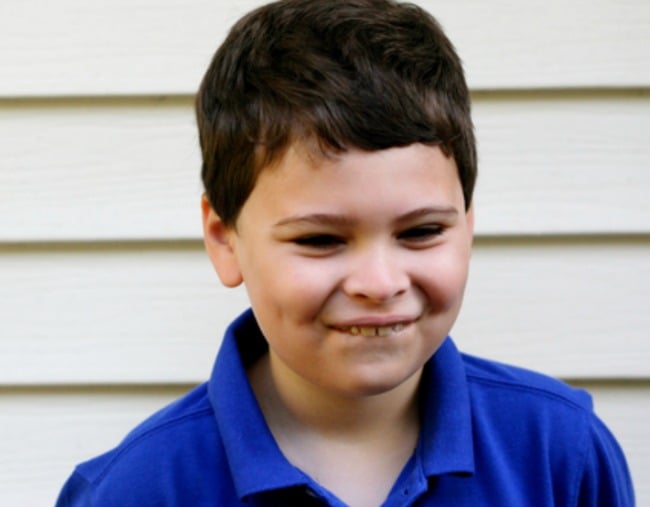
Elizabeth* has a six-year-old daughter with autism, who she describes as “extraordinary, bright, inquisitive, sensitive, kind, fiery and impulsive”. Sarah* was diagnosed when she was five, but even before that, her mum started noticing a common theme in her emotional responses: distress.
“My daughter was three years old when I began to see that she was suffering from anxiety,” Elizabeth tells Mamamia. “Her responses were often extreme to certain situations.”
Now, as a primary school student, “She is, more often than not, quite stressed and extremely heightened.”
Early intervention, however, including “a combination of medication and professional treatment,” has vastly improved Sarah’s quality of life. She hasn’t been bullied at school, she’s able to make and retain friendships, and she’s been taught how to remove herself from a situation when she starts to feel overwhelmed.
But many other children with autism don’t receive this kind of support, and even with the resources and strategies available to Sarah, who is described as ‘high-functioning’ on the autism spectrum, she’ll likely face struggles in her life that people without autism just don’t have to.
So what happens when children like Sarah grow up? Or her peers, many of whom are lower functioning, and may also have cognitive disabilities?
For a long time, it wasn’t clear. The relevant research didn’t exist. Then a study from Sweden, published in 2016, identified “shameful” rates of premature death among those with autism.
The study found that people with autism die an average of 16 years earlier than members of the general population, and for those who also had learning difficulties, their life expectancy was 30 years shorter than people without autism.


Top Comments
I was diagnosed at age 4 1/2 as being on the spectrum & I'm now 50 years old. Maybe I'm the exception to the rule.